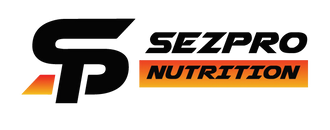
What and when to eat for Weight Training
Proper nutrition plays a critical role in enhancing performance during weight training sessions and maximizing muscle synthesis. Right food and strategically timed meals can do wonders when it comes to achieving your fitness goals. This comprehensive guide provides valuable insights and practical tips on how to optimize your nutrition for weight training.
Importance of Nutrition for Weightlifting
Understanding the significance of macronutrients—Understanding how carbohydrates, protein, and fat can assist you in energy production, muscle growth, and improving cellular health — is crucial before diving into specific meal plans. Learning how to balance all three macronutrients is very necessary for enhancing and maintaining lean muscle mass while simultaneously cutting your body fat.
Consumption of at least 1.2-2 grams of protein of total body weight is usually suggested for the population who keep themselves involved with resistance or strength training on a regular basis. Furthermore, these individuals also require a considerable amount of carbohydrates so that they can keep up with their rigorous level of workouts, which lies between the range of 5-12 grams of carbohydrates per kg of total body weight. While no specific recommendation exists for fat intake, choosing healthy, plant-based fats is advisable.
However, optimizing nutrition goes beyond food choices—it also involves meal timing. Research suggests that proper meal timing enhances tissue repair, increases muscle synthesis, and even improves mood.
Nutrition: Pre, Post and During Training
Consuming enough calories each day is crucial to maximize your workouts. Being in an energy deficit—consuming too few calories—makes it more challenging to effectively build muscle.
If you are finding it hard to calculate your daily calorie intake, then you can take help from calorie monitoring fitness applications. However, you also need to accept the fact that your daily calorie intake will always be higher than a sedentary individual, despite of what your fitness goal is, because you are someone who engages themselves with a regular resistance or strength training. Gender, training intensity, frequency, size, and sex all contribute to your unique caloric needs.
Adjust your diet and training routine accordingly once you've established your daily calorie intake. Consider three key aspects: fluids during activity, pre-activity foods and fluids, and post-activity food and fluids. Addressing these elements will optimize your nutrition specifically for weight training.
Pre-Training Nutrition
The pre-training meal is crucial, as exercising on an empty stomach can hinder performance. Consuming a combination of carbohydrates and protein before your workout provides the necessary energy for optimal training.
Ideally, aim to have a meal 60 to 90 minutes before your training session. However, this may vary based on your tolerance for food during exercise. Some individuals may require a meal as early as 3 to 4 hours before training. If you find it challenging to eat within the recommended timeframe, have a lighter meal closer to your workout, but reduce the carb and protein amounts.
For instance, if you have 30 to 60 minutes before your session, aim for 20 to 30 grams of carbohydrates and protein each. However, if your prefer to consume carbs and protein within a 15 to 30 minute time fame prior to your training session then you should aim for at least 10 to 20 grams of carbohydrates and protein. The pre-workout snack or meal not only provides energy during training but also influences recovery. Research indicates that consuming a small amount of protein before weight training aids in protein assimilation and muscle rebuilding during the recovery phase. Additionally, ensure proper hydration before your workout by consuming enough fluids. Monitoring urine colour and aiming for a light lemon-coloured urine is an effective way to gauge hydration status.
Fueling During Training
Unlike endurance athletes, weight trainers generally do not need to consume food during their training sessions. However, if your workout exceeds 60 minutes, having a hydration plan is important.
For sessions lasting longer than an hour at a reasonably high intensity, consider consuming about 14 fluid ounces of a sports drink (containing approximately 7% carbohydrate or 25 grams of carbohydrate) every 30 minutes. In hot environments or if excessive sweating occurs, slightly more fluid may be necessary, but excessive intake should be avoided. Proper hydration helps maintain normal blood glucose levels and prevents rapid depletion of muscle glycogen, ultimately enhancing performance.
Post-Training Nutrition
The timing of your post-workout meal remains a topic of debate among experts. Some studies suggest a 30-minute window after exercise where consuming high-quality protein, such as whey protein isolate, maximizes muscle repair. However, other research indicates that this window extends to at least 3 hours after exercise. Overall, meeting your total macronutrient goals for the day is more critical than precise timing.
Strategies to Optimize Post-Training Nutrition
Carbohydrates: Consume 50 to 100 grams of carbohydrates soon after your session.
Fluids: Within the first hour, replenish fluids lost during exercise and add an extra 50% to compensate for the post-workout energy expenditure, especially if you plan to train again later in the day. Monitoring urine colour and aiming for a light yellow colour is an effective way to gauge hydration status.
Protein: Consume 10 to 20 grams of protein alongside carbohydrates within 30 minutes of completing your session. For lighter training programs, a lower protein intake may be appropriate.
Bottom Line
If your goal is to accomplish peak performance in the weight room then without a doubt you need to align your nutrition according to that. Meal timings, when timed correctly can help you in achieving your peak performance and enhancing the process of muscle growth and repair. Consider your individual caloric needs, timing of pre- and post-workout meals, and hydration during training.



